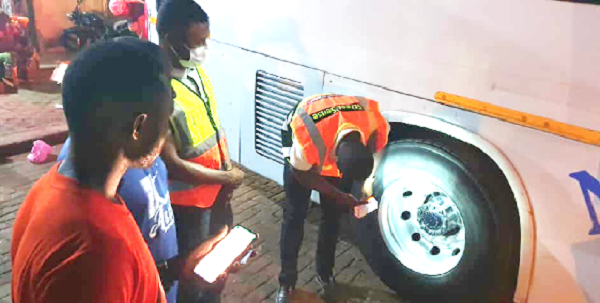
Regulating commercial transport for road safety
In Ghana, road transportation accounts for nearly 95 per cent of all passenger and freight traffic, with commercial buses providing intra and intercity services accounting for an estimated 48.2 per cent of all motorised trips.
Apart from the limited participation by the state-funded Metro Mass Transit (MMT) and inter-city STC Coaches Limited, the sector is predominantly privately owned, informal and unregulated.
The commercial road transport sector is characterised by easy entry and exit protocols, substandard and unsafe vehicle fleet, informally trained drivers and a lack of internal control systems that prioritises profit over safety and convenience.
These conditions, among others, conspire to negatively impact the general safety profile of the industry.
To address these gaps, the National Road Safety Authority (NRSA) is mandated to lead the regulatory administration of the commercial road transport (passenger and freight) sector to improve service quality and road safety.
Registration, permitting
Consistent with global best practice, the regulatory regime requires that all persons intending to carry out business such as commercial road transport services should either incorporate a business or join a transport union or association.
Though there is an existing business registration regime for transport operators at the local assembly units, the processes are revenue-oriented and low on quality assurance.
The new plan seeks to improve the process with safety guidelines and the issuance of market entry licences and operational permits by the authority working in collaboration with district assemblies.
Mandatory operational heads
One of the underlying conditions of the grant of licence or permit for any regulated activity including public service transportation is the evidence of technical capacity to carry out the regulated activity.
Global best practice examples show that where public service fleet operations are managed by a competent operational head, the risk to crashes and casualties is very low and high without competent operational heads at post.
The new regulatory regime will require that every operational permit provide evidence of a technical person who shall assume responsibility for ensuring minimum safety conditions for service vehicles, drivers and operational controls.
The technical person, transport manager or operational head must possess a minimum diploma in transport and logistics or in the case of the informal operators, must have five years experience in that role and is trainable.
Continuous
Continuous training of critical staff is one tool deployed to sustain the quality of a regulated transport service.
For instance, in the aviation industry, even when a pilot is trained and is assessed as skilled enough to fly commercially, he is required to go through a continuing education and training programme throughout his career.
Regrettably, we cannot say the same for the operational culture of the commercial road transport industry in Ghana.
Though predominantly informal, commercial drivers hardly avail themselves of refresher education even when free.
The effect is the high-risk driving profile of commercial drivers leading to many avoidable crashes on our major and high traffic routes.
The new agenda places a responsibility on all fleet operators to ensure continuous road safety training for its drivers as a condition for operational permit renewal.
Routine inspections
Despite the general challenging quality of our road network and the desire for improvement, there are examples of fleet operators in Ghana yet to record a crash on our roads in more than 10 years and counting.
The success of these companies is traceable to their maintenance and inspection programmes, which limits the risk of the vehicles and drivers to a road traffic crash.
The new agenda will require a robust vehicle maintenance programme for fleet operators and mainstream routine pre-trip operational inspections as prescribed by the NRSA.
Road safety inspectors appointed by the authority will be required to conduct operational inspections to ascertain the level of compliance with these quality operational standards.
Consequences
These reforms will not improve our road safety ratings, without any consequences.
Offending transport operators risk a suspension or revocation of their permits, imposition of an administrative penalties of between GH¢12,000 and GH¢240,000 for failure to implement regulatory controls.
Further, the authority will seek to influence consumer choices for transport services through an annual safety ratings on the basis of quality of transport services.
In conclusion, we have a choice to a better narrative through these reforms.
Let us work together to disrupt the risky services and make it better by implementing these basic global best practices to deliver a first-class commercial road transport service that provides convenience and road safety.
The writer is Head of Regulation, Inspections & Compliance,NRSA. E-mail:
